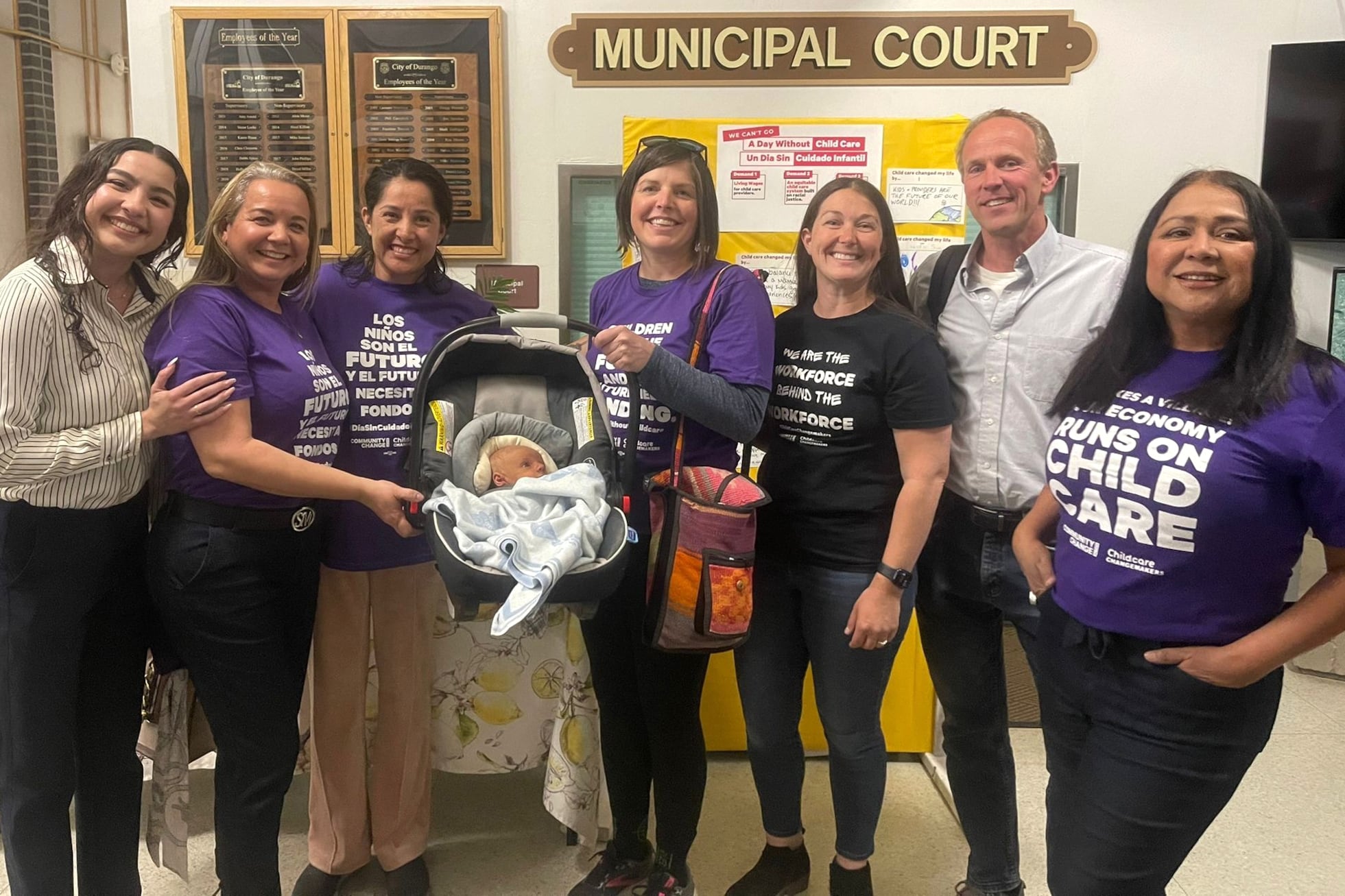Stay up-to-date on the latest news in early childhood education and development across the U.S. Sign up for Chalkbeat’s free monthly newsletter The Starting Line.
In November, voters in La Plata County in southwest Colorado will consider reallocating part of the county’s lodging tax to support child care and affordable housing.
Local advocates plan to use a new $100,000 grant to urge a yes vote from residents and think ahead about how to distribute the money if the ballot measure passes.
The grant is one of seven focused on prenatal and birth-to-3 issues announced Monday by the nonprofit Early Milestones Colorado. Other recipients include Hunger Free Colorado, Immunize Colorado, and Mile High United Way. The grants, several of which aim to help Hispanic and immigrant communities, came through Early Milestones’ “Impact on Equity Fund,” a new program seeded with a $2.5 million gift from billionaire philanthropist MacKenzie Scott.
The grant program unfolds at a challenging time for Colorado’s youngest children and their families. Federal COVID relief funds for early childhood have dried up, infant and toddler care is hard to find, and in recent years, much of the state’s energy has gone toward 4-year-olds served by the state’s new tuition-free preschool program.
In La Plata County, the $100,000 Early Milestones grant will fund a bilingual “navigator” to help Spanish-speaking child care providers and families. It will also help leverage a consistent stream of money for child care — about $500,000 a year if the lodging tax measure passes. (Another $200,000 in lodging tax proceeds would go toward housing efforts.)
“It’s a child care desert down here,” said Rachel Landis, executive director of the Good Food Collective, which is part of the La Plata Food Equity Coalition that received the grant. “I know folks with babies are desperate.”
The lodging tax measure money would fund 100 child care scholarships for middle-income families with babies and toddlers and bump up wages for infant and toddler teachers by 6 percent, she said.
Landis credits a group of Latine moms for pushing for more child care support. The mothers began meeting on their own every Friday night to discuss the issue and ultimately raised their idea to the broader coalition, she said.
“I think initially the coalition was like, ‘Huh, that’s interesting, child care. How’s that related to food security?’” Landis said.
The mothers made a compelling case, connecting their ability to work and put food on the table to the availability of child care.
“It was this very systemic, upstream way to try to address multiple issues that feed into … food insecurity,” she said.
Across the state in Jefferson County, another $100,000 Early Milestones grant will support a project focused on early childhood nutrition and mental health.
The grant, awarded to Triad Bright Futures, will fund a yearlong program called Maternal Child Health Leaders for Equity that includes training and leadership opportunities for 20 Hispanic community members. They’ll receive stipends for participating and will practice what they’ve learned by shadowing home visitors who support parents with young children or helping facilitate community meetings on mental health or food access.
Participants will also be part of a “co-mentorship” program in which local community leaders — from home visiting, parent support, and mental health groups — will provide guidance and advice. Participants will also share feedback and suggestions with their co-mentors.
Paulina Erices, director of development and strategic initiatives for Cuenta Conmigo Cooperative, one of the project partners, said the idea is to bridge the gap between local organizations that are working on health and social service efforts and community members with different ideas or approaches.
Often, the two groups are working on the same problems, “but they are not talking to each other,” she said.
At the end of the yearlong program, which will start in January, Erices said she hopes local organizations and community members will have deeper connections and more shared projects.
Ann Schimke is a senior reporter at Chalkbeat, covering early childhood issues and early literacy. Contact Ann at aschimke@chalkbeat.org.





